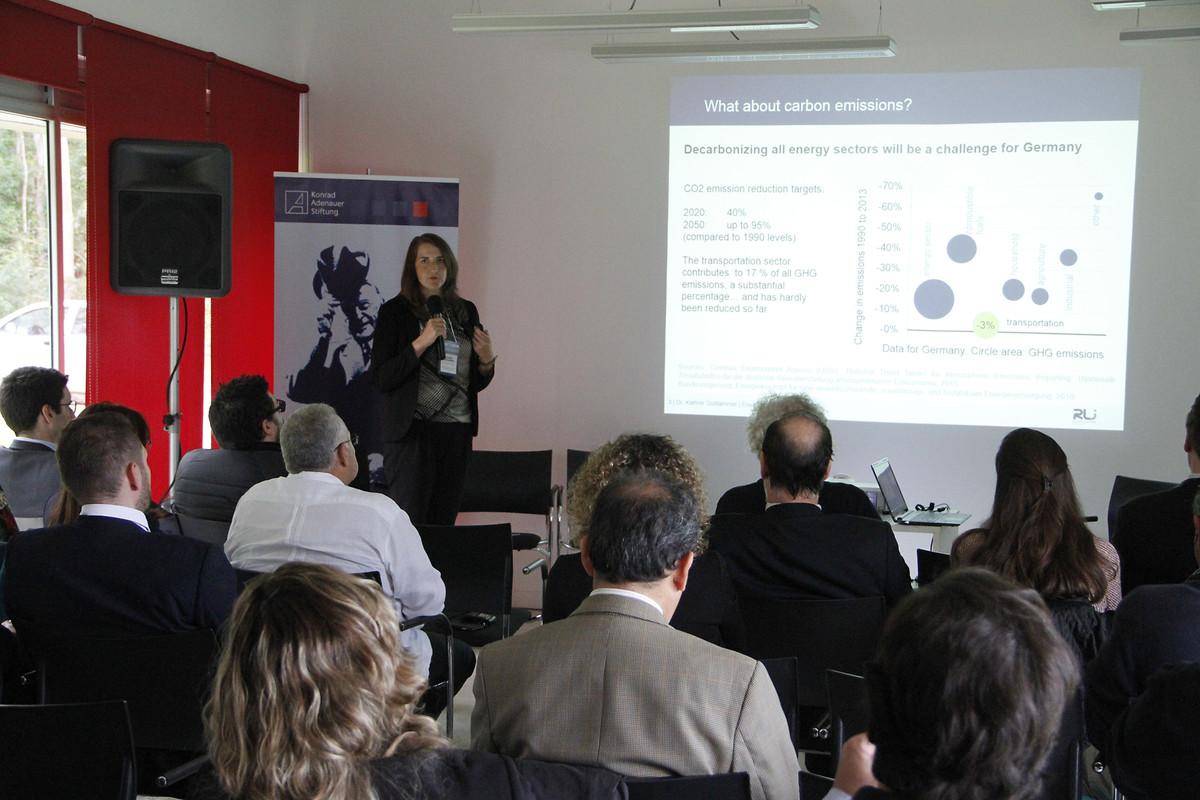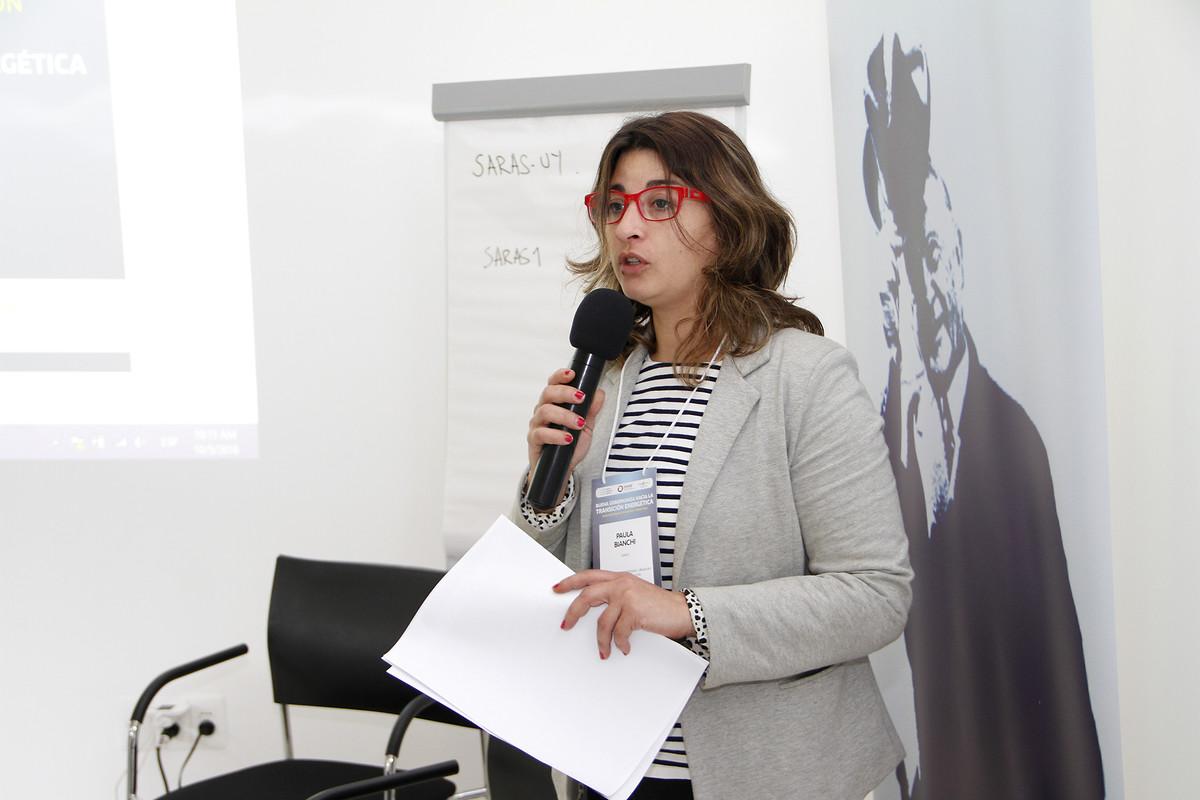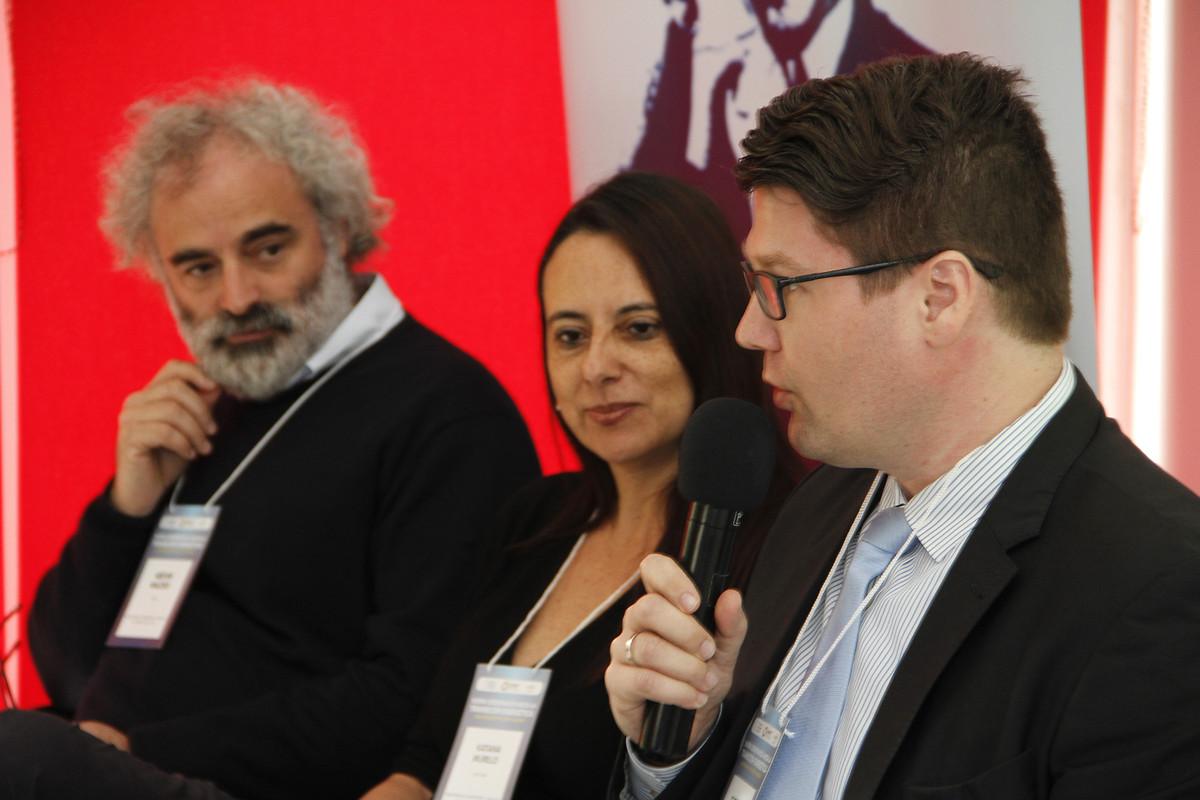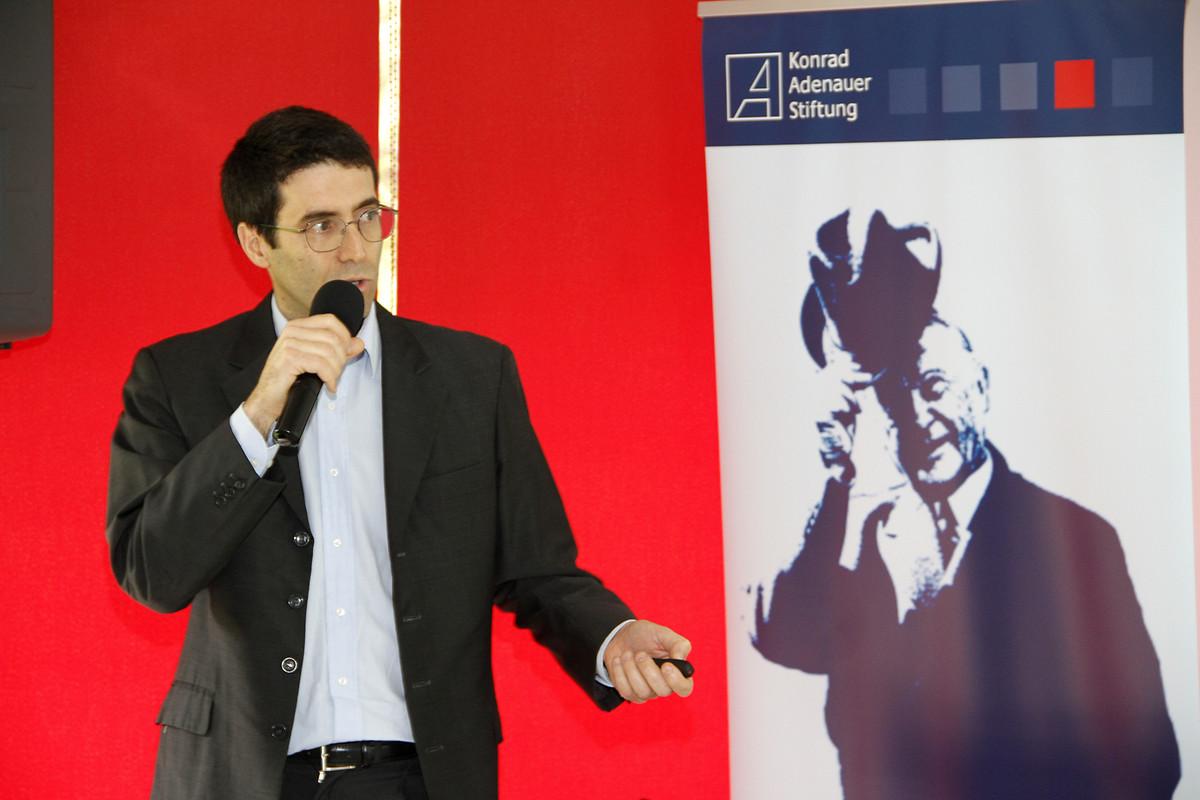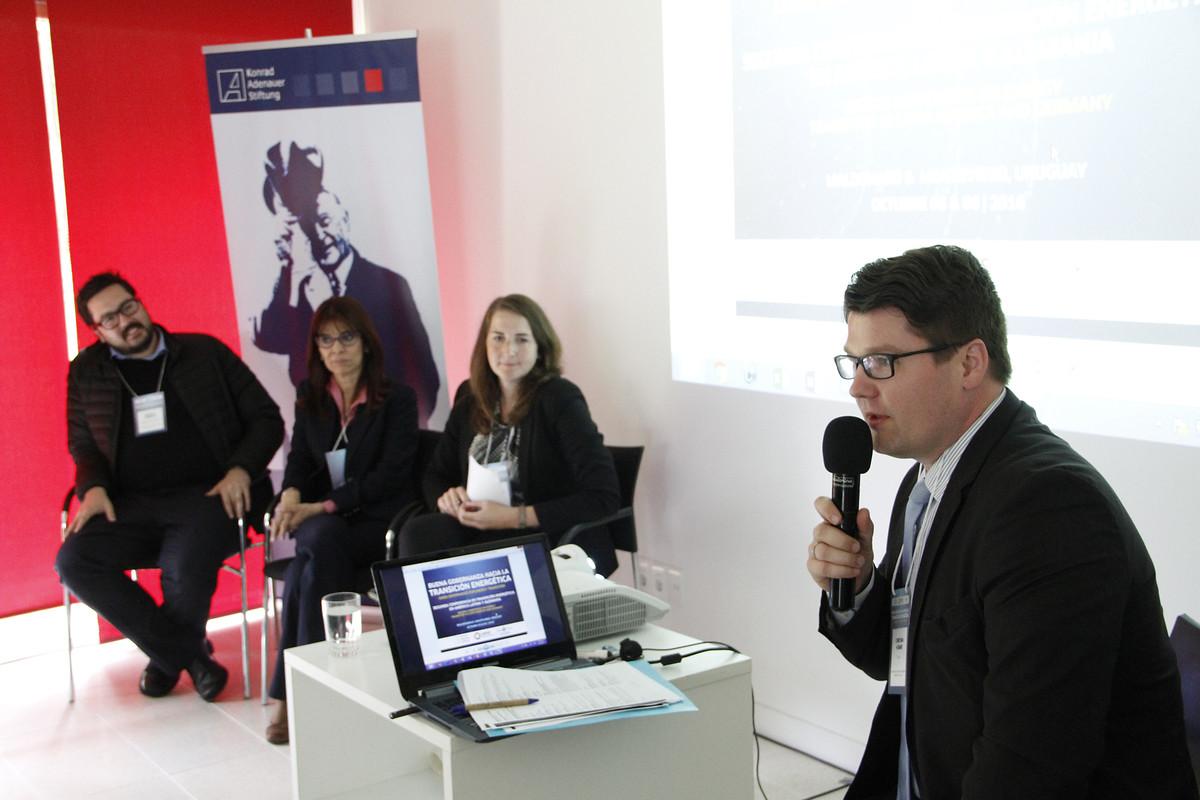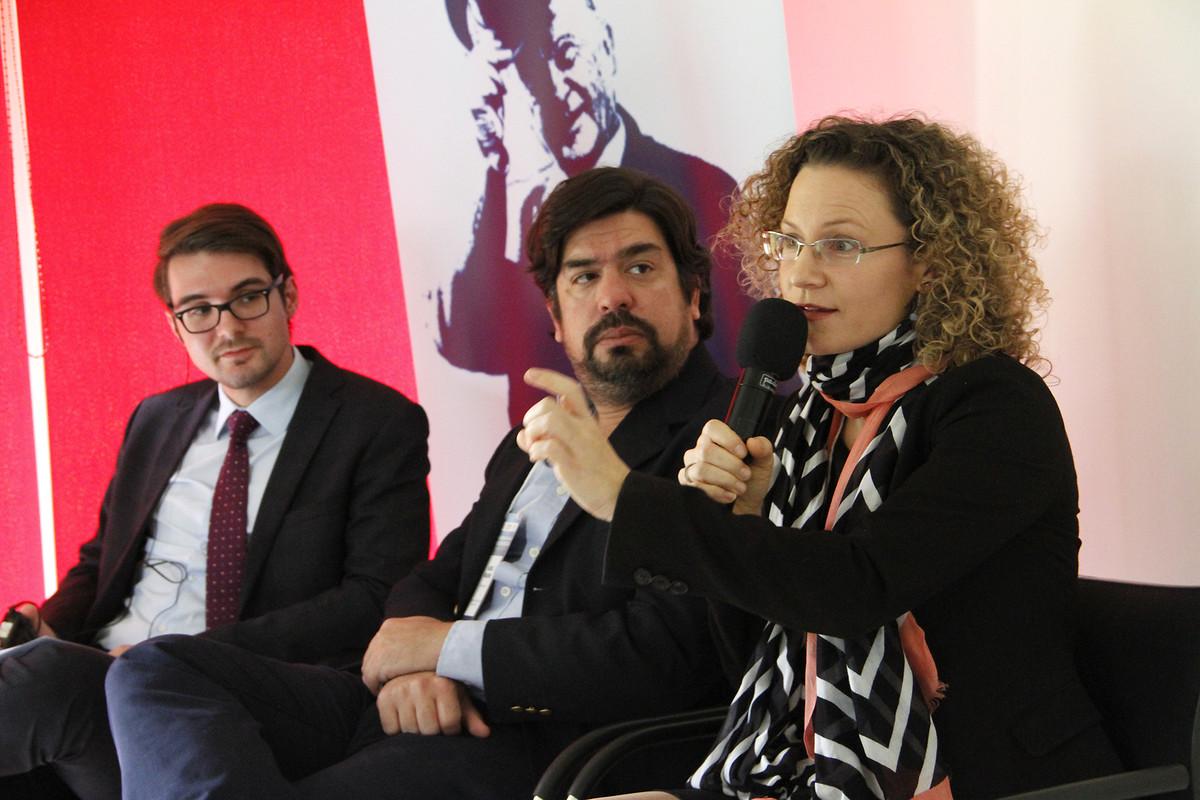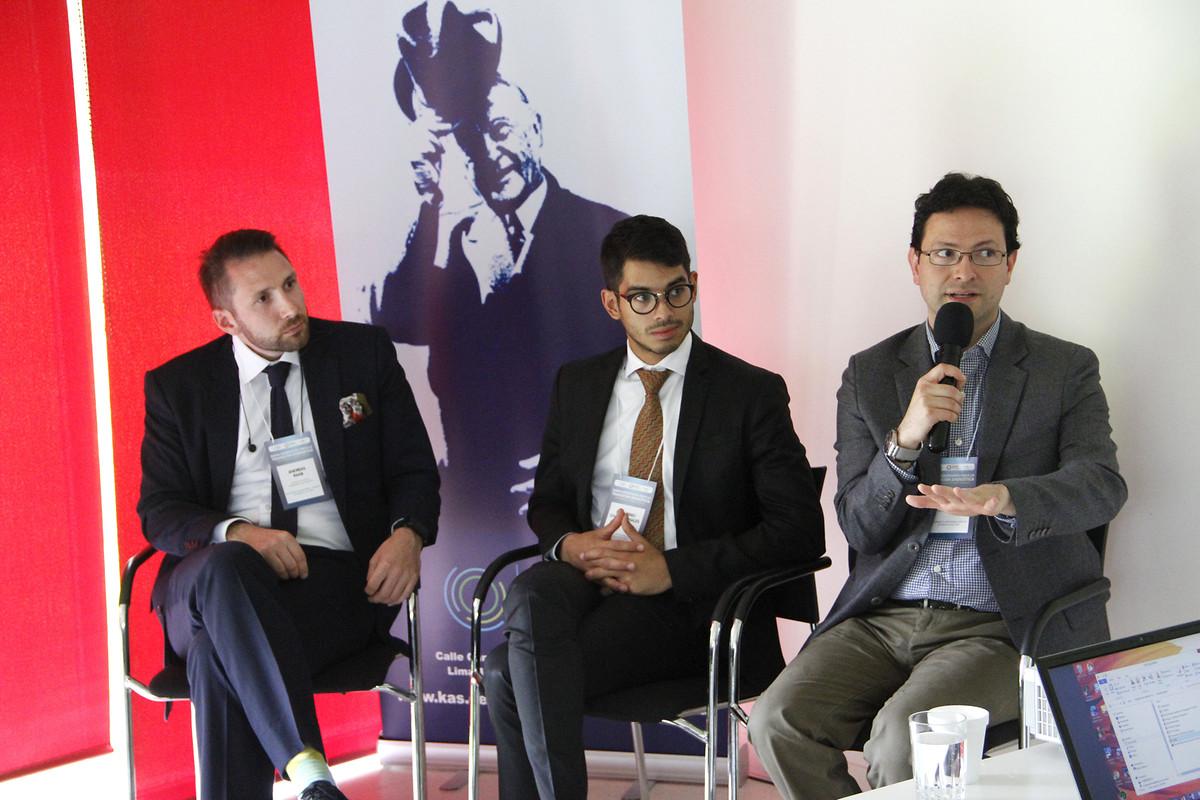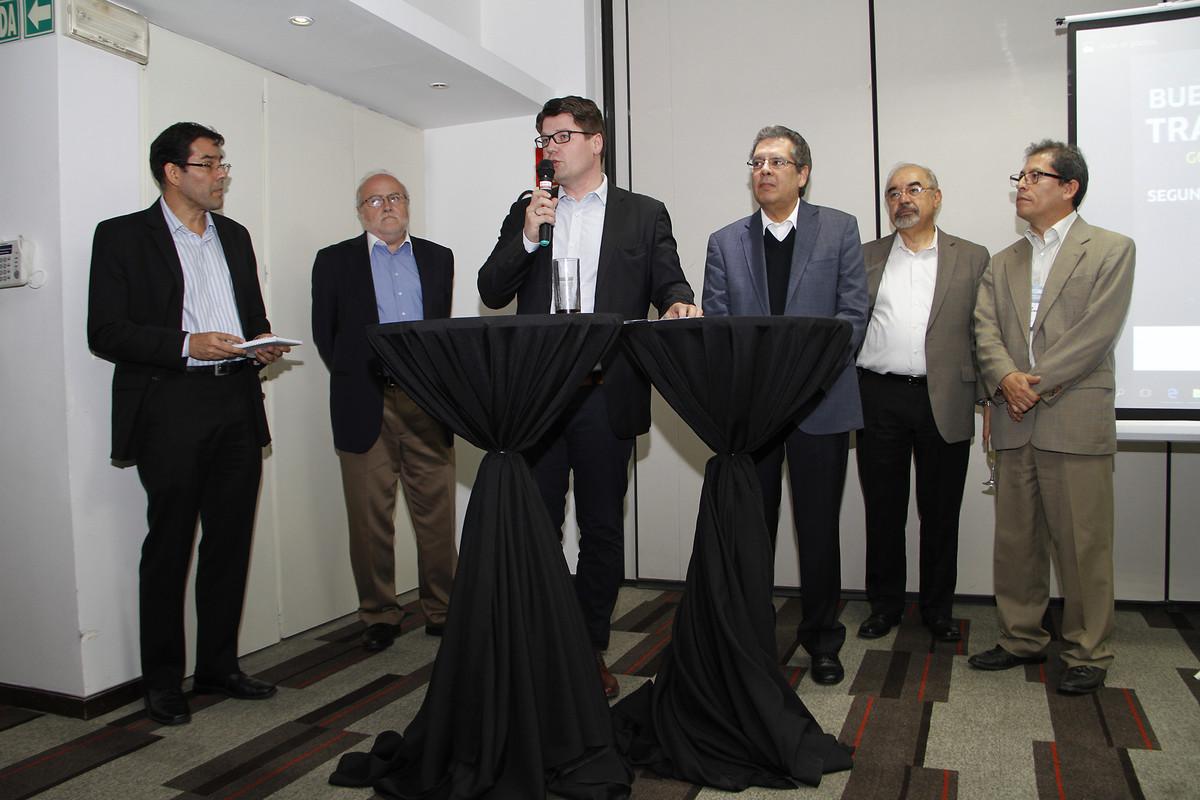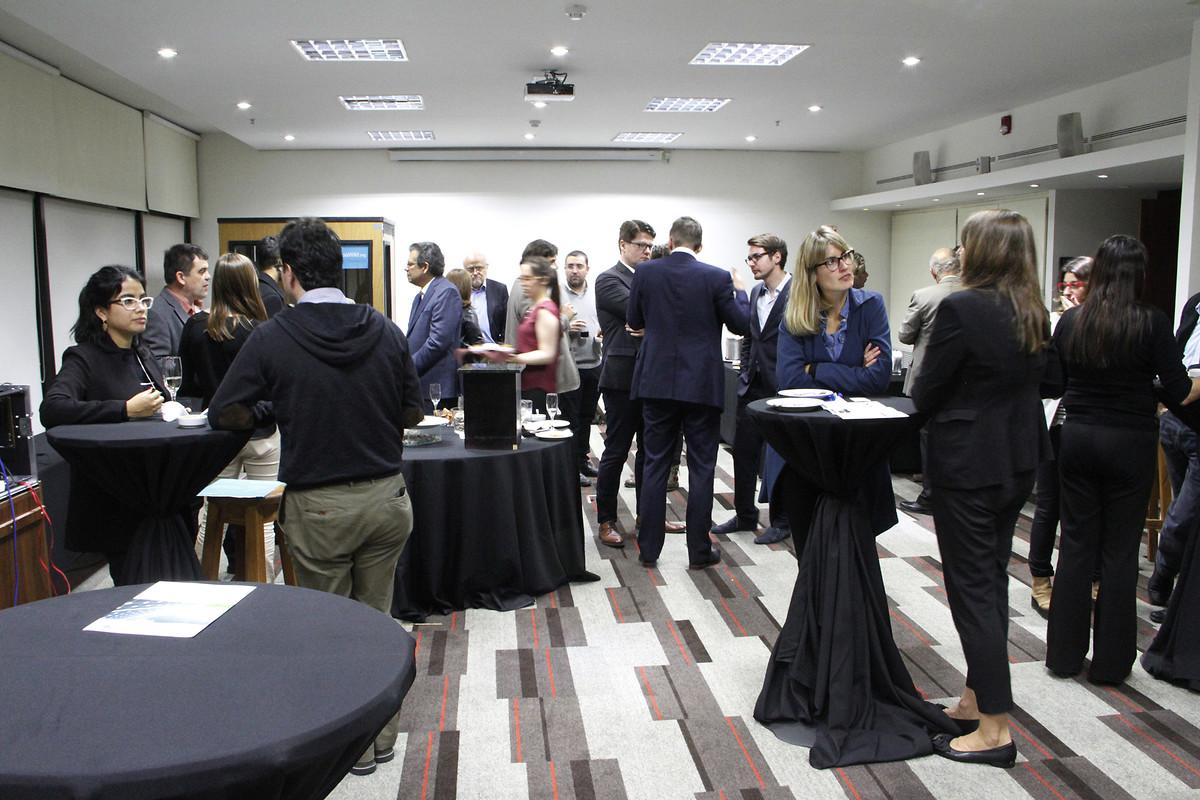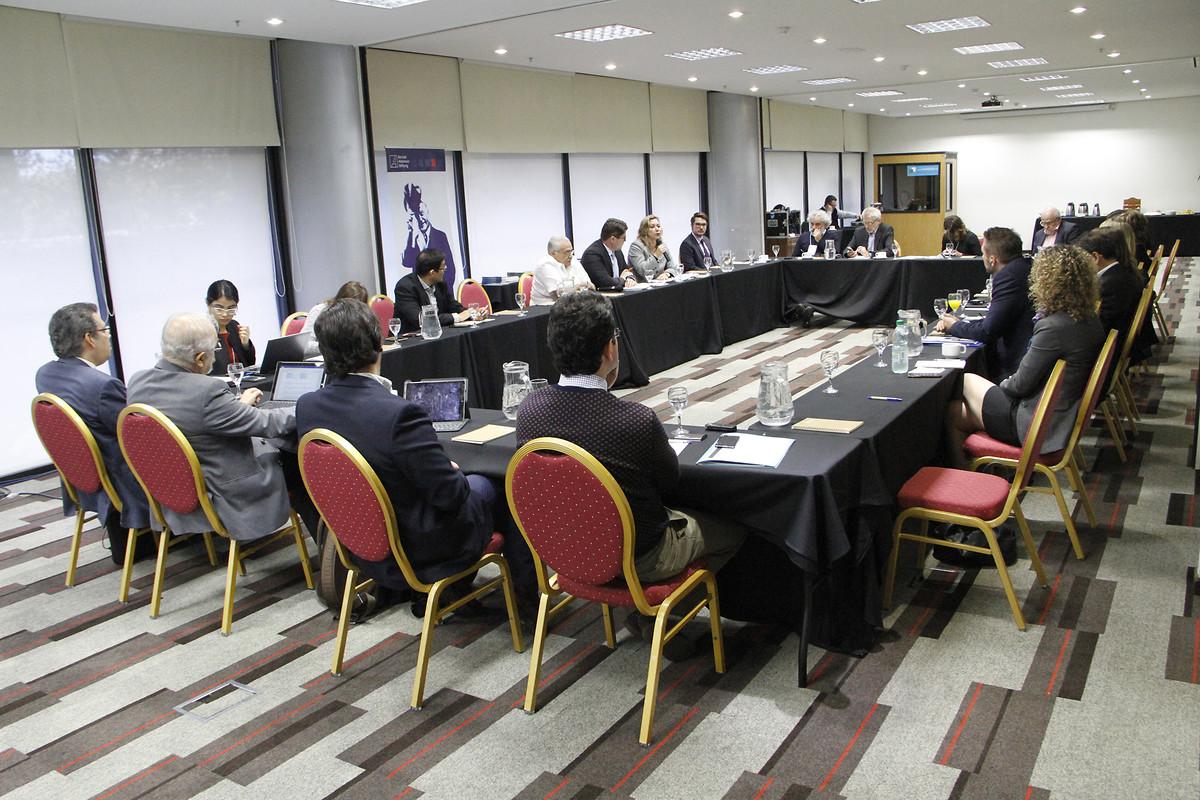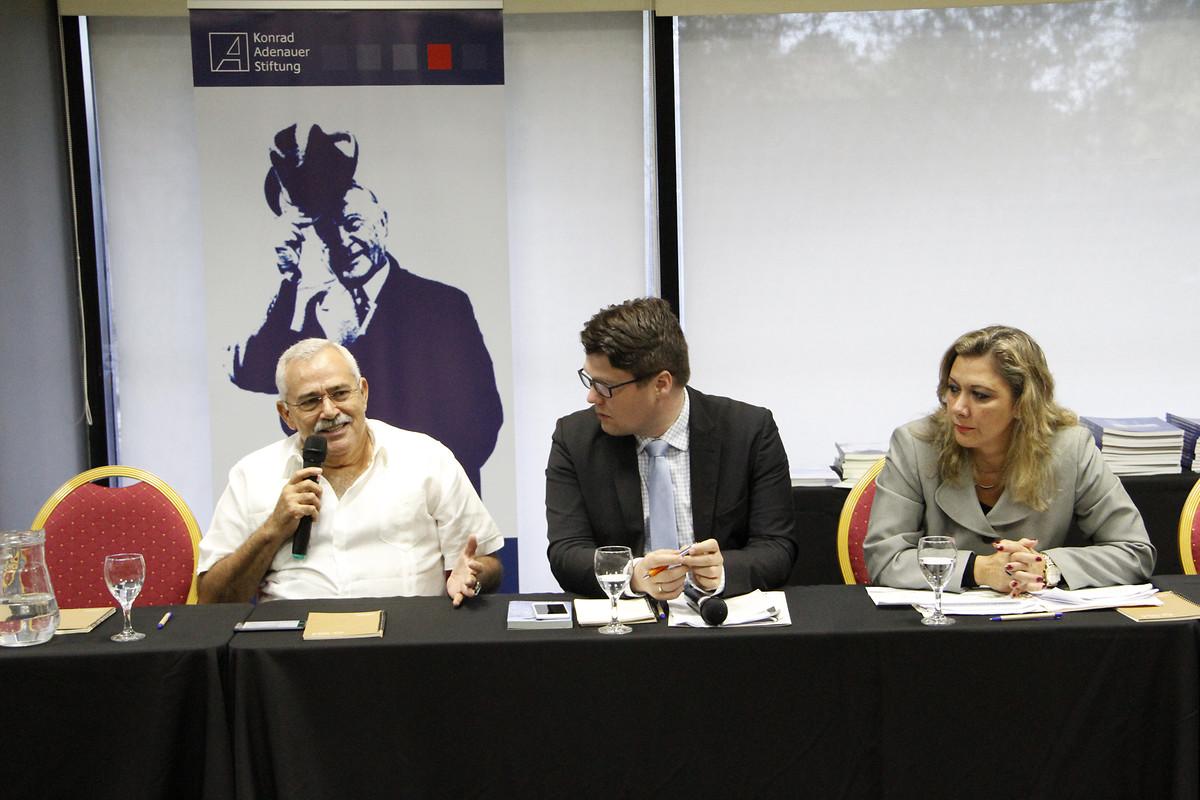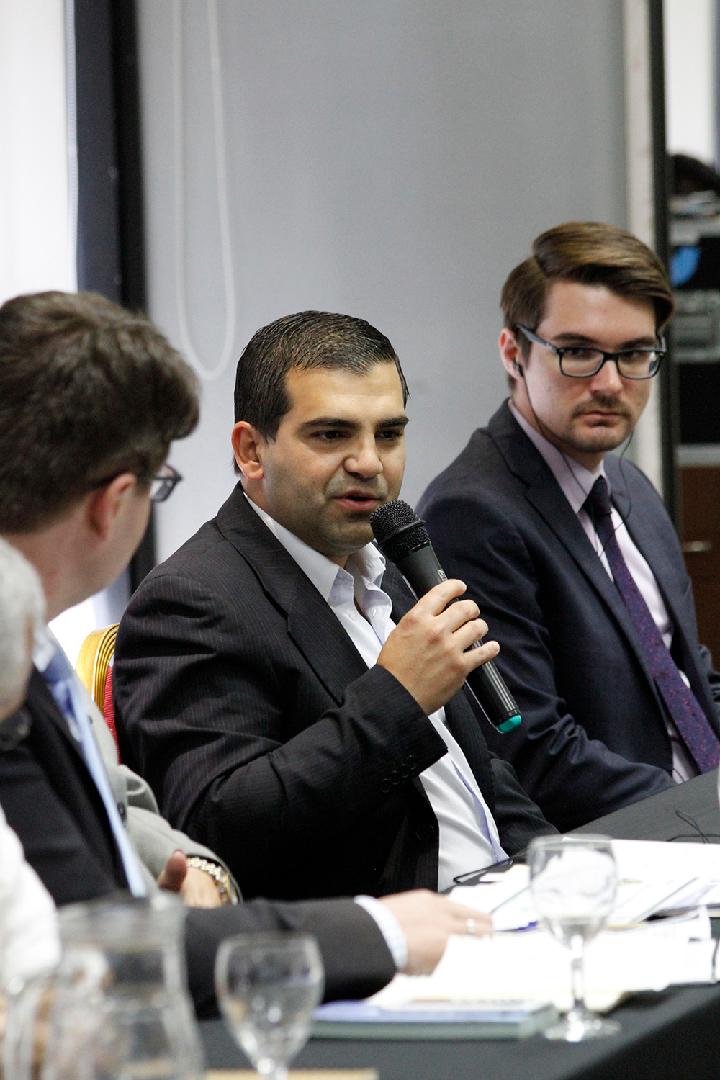Event reports
When it comes to the consistent implementation of the energy demand, only Uruguay and Costa Rica are –as per usual– at the top of Latin America and the Caribbean. The share of green energy last was more than 50 percent of the national energy mix. Against this backdrop, Uruguay offered the right scenery for a continuation of the “Good Governance for Energy Transition” conference. To this end, the Regional Programme Energy Security and Climate Change in Latin America of the Konrad Adenauer Foundation (EKLA KAS) had invited more than 30 energy experts from the region as well as Germany to Maldonado, near the capital, Montevideo. EKLA KAS had already held an initial conference of this kind a year earlier at the headquarters of the program, in the Peruvian capital Lima. “We will discuss how the Paris climate deal will continue and what conditions can lead to a successful energy transition” said Christian Hübner, Director of EKLA KAS, in his welcoming speech. Co-organizers of the conference were the SARAS Institute and LatinClima. "Ten years ago, wind power played almost no role in Uruguay," said Martín Scarone, a representative of the Uruguayan Ministry of Energy, in his keynote speech on the state of renewable energies in the country. “But we have made an attractive financial business out of wind power” explained Scarone. Above all, the safe framework conditions attracted investors from abroad and pushed forward the expansion of wind power.
The first panel of the day was devoted to the classification of the climate agreement of Paris and gave an overview of the energies in Germany and the countries of Latin America and the Caribbean. Alexandra Arias, Coordinator of the Latin American Energy Organization (OLADE), pointed out in her lecture the intersections of the Paris agreement with the Sustainable Development Goals of the United Nations. “Poverty reduction, health care or access to education, are goals that can only be achieved through safe electricity access. Renewable energies are ideally suited to bring electricity even to very rural areas without network access”, said Arias. Even in metropolises such as Buenos Aires or Sao Paulo, there are always power failures, especially in the summer, when a lot of electricity is needed for cooling. Here, on-roof PV systems can also help.
“The Paris Climate Agreement increases our ambition. It reminds us that we have to meet our energy targets by 2030” explained Ignacio Lorenzo, the office for climate issues at the Uruguayan Construction Ministry. If, according to the national energy strategy, Uruguay is to be climate-neutral by 2030, the country is on a very good road, taking into accoun the expanding wind power. The agricultural sector mainly draws its electricity from biomass power plants, “now it's about bringing clean energy to the transport sector and increasing energy efficiency” said Lorenzo.
Kathrin Goldammer, director of the Reiner-Lemoine Institute, based in Berlin, undertook an historical classification of the German energy transition. This is rooted in the environmental and anti-nuclear movement, which, according to Goldammer, must be taken into account when discussing their development. "The German energy market is a political matter rather than a technical one”. Goldammer concluded that “climate protection and the adherence to climate change are very recent arguments in the German energy market”. How does the climate change of Paris drive the German energy sector? “In my opinion this Agreement will have little effect. Other countries, such as China and the USA, are now pioneers in international climate protection” Goldammer said. The fact that the largest issuers take responsibility is very positive. For Germany, the goal is to implement the national energy policy goals consistently, in order not to lose credibility internationally.
The second panel discusses the countries experience with tendering models. “In the past five years, renewable energies have gained acceptance in Peru” explained Danielle Rough, Head of the NAMAS Renewable Energy Project. Measured against its potential, however, the country is at the very beginning of its use. National calls for proposals are now aiming to further their expansion. “Because there are no subsidies or tax incentives, the competitiveness alone determines the success of renewable energies” Rough explained. If the offers exceed the state-defined maximum price, no surcharge will be granted. Rough made it clear that climate protection is not necessarily the argument that drives renewable energies in Peru. “Peru is a relatively small issuer. So it must be a matter of underlining other advantages of building renewable energies” Rough outlined. For Peru it is about improved access to energy for the rural population, improved energy security and environmental protection.
Brazil has recently ratified the Paris Climate Agreement, which is committed to reducing its emissions by almost half the target year by 2030. "Brazil wants to present itself as a future low-carbon economy" explained Matthias Franchini, energy researcher at the University of Brasilia. According to Franchini this is a good start. "However, I must warn against raising expectations too high". He justified his concerns with the economic situation of the country, which is always unstable. On the other hand, wind power in Brazil is a success story, above all in the north-east of Brazil, where excellent conditions dominate and at these locations wind power is competitive with hydropower. Calls for tenders have been the key element in Brazil since 2004 in order to expand the wind power plant. According to Franchini it was difficult to find small investors on the market due to increasingly restrictive conditions for participation in auctions and the need for a high capital contribution. Projects are also repeatedly delayed in their realization, which makes the ability to plan capacities more difficult.
Bernd Weber, Head of Energy Policy and Energy Efficiency of the Economic Council of the CDU, presented the current situation of energy users in Germany: groundbreaking laws were amended, but the decisive instruments remain. Renewable energies continue to enjoy feed-in tariffs and guaranteed for 20 years. The introduction of tendering procedures means that competition - and not policy- determine the level of funding. At the same time, the legislature defines the extent to which they wish to promote it each year. As a result, each market participant no longer receives remuneration, but only those who are in the competition. “The Federal Government is thus pursuing the goal of making the conversion of energy supply more predictable for the market participants, with all its consequences" explained Weber. The new as well as the old energy world would have an interest in reliable conditions to make investments safe, Weber concluded in his presentation.
“We came late to the party of renewable energies. But to make use of a typical proverb, whoever comes late, stays longer” Guillermo Chavez, Head of Renewable Energies at PWC Mexico, opened his lecture, which also introduced the third panel of the day. Chavez presented the reform of the Mexican energy sector introduced two years ago and its impact on the expansion of renewable energies. The second round of tenders was closed in September. The majority of the projects came from the fields of photovoltaic and wind power. In total, 8.9 Terawatt hours (TWh) of clean energy were allocated annually, at an average price of 33.47 US dollars per megawatt hour. Far more foreign investors had participated in this second round. “Foreign investors are interested in the Mexican energy market because we can offer them a stable environment” said Chavez. The new success of Wind and PV is not the result of the reform, but is the result of a good cooperation between the government, private investors and multilateral organizations. In the energy sector, however, areas such as transportation have not yet been considered. To include them is a next urgent step, according to Chavez.
“Unfortunately, Colombia did not make it to the renewable energy party” said Javier Rodriguez, Renewable Energy Officer at the University of Los Andes in Colombia. In recent years there has been virtually no investment in wind, PV or other renewable energies. It is urgently necessary to make a switch: hydropower supplies are becoming more and more problematic in the face of increasing droughts. Many people in rural areas do not have secure access to electricity. In addition, the low oil price has impacted the Colombian economy. Promoting renewable energies could help diversify the national economy. Although the government has declared the expansion of the sun and wind power as one goal, political and economic instability is always preventing concrete measures from being implemented and investors are reluctant to get involved in Colombia. As Javier Rodriguez concluded, the expansion of the energy sector, as in Mexico, could lead to the expansion of renewable energies.
Andreas Raab, lecturer in Regenerative Electricity and Energy Systems at the Technical University of Berlin, presented in his lecture what changes are taking place in the current energy market in Germany and how investors can participate in this. “It's about involving as many sectors as possible” said Raab. He highlights the important role of electromobility. Today many companies from quite different fields are already working to bring more electric vehicles onto the streets. The German electricity market is also changing: the time when a few generators have distributed the electricity centrally is coming to an end. More and more “Prosumer” generate their own energy, consume them themselves and feed energy into the networks. It is therefore an urgent task to make the networks fit for this challenge. Digital solutions can help to intelligently match supply and demand, thus avoiding overloading the networks. For companies, many new attractive business models are offered here, outlined Raab.
“The day has shown once again that the energy turnaround in the region is irreversible” summed up Enrique Rodriguez-Flores, energy expert of the Inter-American Development Bank (IDB), in the evening retrospect. As the greatest opportunity as well as challenge, he valued the need for an energy integration of the countries of South America and the Caribbean. There is still a long way to go by the necessary precautions, such as a legal framework. However, the potential is enormous, especially given the fact that the countries have different potentials for clean energy sources. “For oil-rich countries like Mexico, a day like today means that we must finally understand that the time of fossil energies is over in the long term". Daniel Daniel Chacón, Regional Director of Mexico, of the Association for Renewable Energies in South America (LARCI), concluded”. This is also a question of ideology that needs not only political support, but backing from the population". "Costa Rica is one of the countries that could meet almost 100 percent of their electricity needs from renewable energies last year. We should not rest on it. Rather, we should work to transfer the successes from the electricity sector to other areas such as transportation, "said Jorge Mario Montero, energy analyst from Costa Rica.
On the second day of the conference, the participants had the opportunity to meet with parliamentarians from Bolivia, Honduras and Uruguay to discuss the challenges and opportunities of energy transition. “The power supply in Bolivia is incomplete, many families are not connected to the network and thus are restricted in their day-to-day life” explained Eliane Capobianco, Bolivian parliamentarian currently in the opposition party. On-roof solar projects, in combination with diesel generators or storage, could solve these problems. In many rural areas there are already projects financed by multilateral organizations. “Nevertheless, there is still a whole lack of the will of the government to carry out a national energy recovery” Capobianco criticized.
It is very difficult to describe a uniform picture of energy demand in Latin America and the Caribbean because of the regional differences. States like Costa Rica and Uruguay are very far in the transformation of their energy sector. Renewable energies are seen here as an economic opportunity for greater energy independence and security. With its energy form and the opening up of the energy sector, Mexico has laid the foundations for investors not only focusing on fossil resources but also increasingly entering renewables projects and realizing their economic importance. This shows countries rich in fossil deposits that a great economic potential can lie in renewable energies. Countries such as Venezuela and Bolivia are still at the beginning with the energy transition. For more acceptance and a greater political will for more renewable energies, the population of these countries must be convinced of the importance of an energy turnaround. In a second step, it is necessary to create the necessary stable framework conditions for investments in corresponding projects. It is noteworthy that the countries of the region increasingly choose the model of tenders for the expansion of renewable energy sources. Competitiveness is often the most crucial criterion. In Germany, on the other hand, renewable energies have long been subsidized. Meanwhile, Germany is also insisting that the technologies have to compete in the competition. Calls for proposals are still a relatively new instrument for the promotion of renewable energies. It is now necessary to observe the extent to which the conditions have to be modified in order to achieve a broad spectrum of clean energy sources and a broad spectrum of actors on the market. Above all, enough volumes must be issued in order to achieve the climate protection targets agreed by the countries.
About this series
The Konrad-Adenauer-Stiftung, its educational institutions, centres and foreign offices, offer several thousand events on various subjects each year. We provide up to date and exclusive reports on selected conferences, events and symposia at www.kas.de. In addition to a summary of the contents, you can also find additional material such as pictures, speeches, videos or audio clips.



